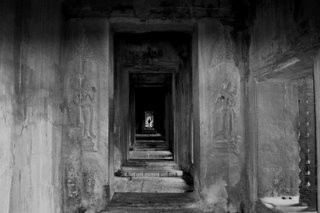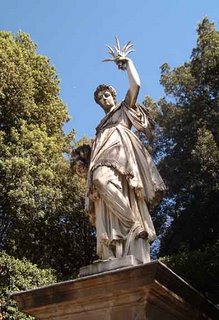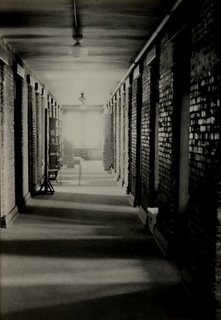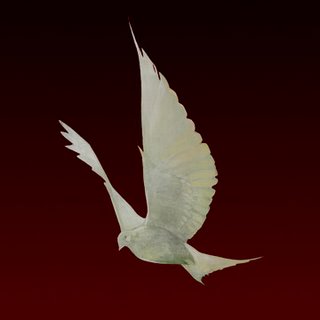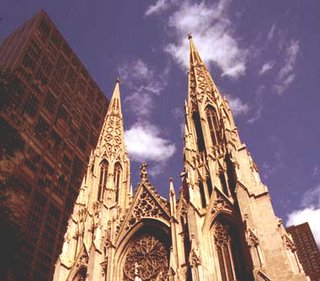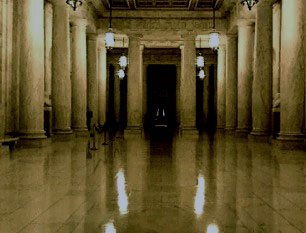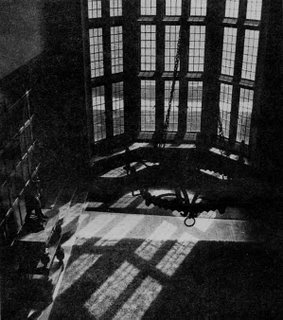Subterranean Routes
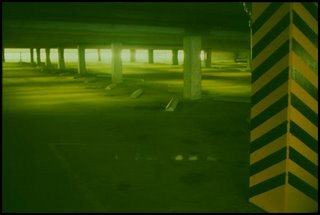
Sometimes I will enter the Great Hall through the parking garage. It is out of the way, but the other-ness of it makes for, if nothing else, an interesting walk. One cannot always walk in the sunlight, one must sometimes take subterranean routes. Rows of cars in the half-light, dull green that lays in lines on the polished exteriors. The side panels make odd, elongated reflections of me as I pass. I glance at my distorted form like a phantom in the bright black hood. If I always looked so distorted, like a ruined painting... or do I? How would I know? I have little time to think of what I am to others. I am almost nothing to myself. All of my energy is put into seeing what is about me, to the point that I lose all sense of having a body. Then I hover for a moment outside of myself, seeing myself as a perfect fixture in some allusive scene. And just as quickly I am back feeling my feet move across the concrete. Rivulets of oil have stained lovely patterns across the dirty floor of the parking garage, like filthy roots extending from the drain. Distant rumblings are always about my ears here, as if I were below ground during a great battle. The floor shakes now and then from another approaching machine, the tires push across the ground with the sound of a wave breaking, or wasps chewing at wood. Pipes are left bare, skeletal fingers jutting from the concrete one way, running back into it another. Sometimes, seemingly from all sides, a low groan is emitted, like a monster turning in its sleep. I pause mid-step and think of Jonah in the belly of the whale.
In these moments, when my solitude is manifested most acutely, into a temporal and physical presence, I feel deeply connected to other people. I think of decisions that we all face that lead us to inhabit certain places, however temporarily. The wheel of destiny rests directly up against our backs, it touches at all points. It moves in synchronicity with the planet's rotation, and at any moment we are free to leap and cling to it awhile. How long is up to us. My destiny is tied even to those people who I have left scattered behind me (o how I miss them!). It is tied to all the past versions of myself, that indeed are myself, that live in me as I live out lives of other people. The farther I let my thoughts drift, the more melancholy tempts me. It has dangerous depths, so easy to slip into. But once again, right alongside this are equal depths of joy, they are simply obscured at times. To know one you must withstand the other, but both hold strong to your will. Both wear masks, speak deception, and want to claim you.
If I could only see beyond my senses, perhaps everything would seem in order. But we are allowed only a small glimpse, what our eyes, ears, mouths, and fingers tell us. The sum of all of this can be considered the ambiance that we read into the world, the crafting of our perception. Perception is led, but it is also a leader. Am I approaching awareness in these moments, when I slip silently, almost unrecognizably, into the rhythm of the heart? I step into a flow of time, it washes over me with transient moments that disintegrate before the unmovable future. The future is an unmovable mountain. It is not unalterable, but it is unmovable. It is an obstruction between us and eternity, a wall between life and the unknown.

